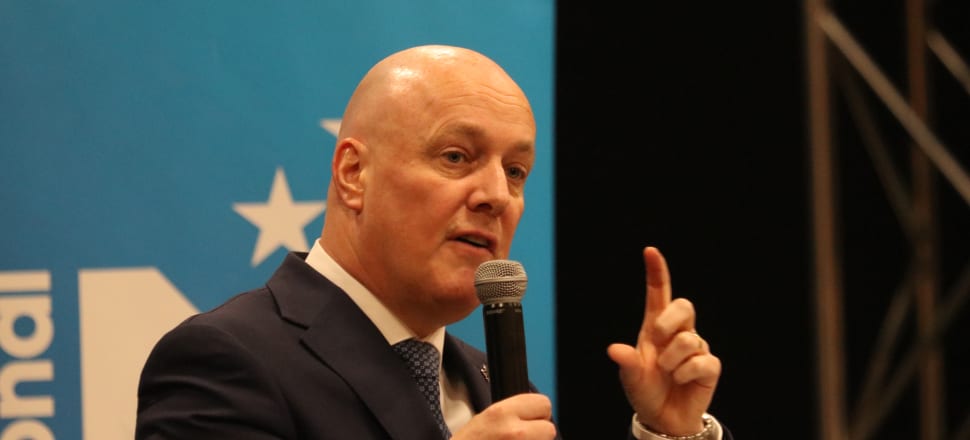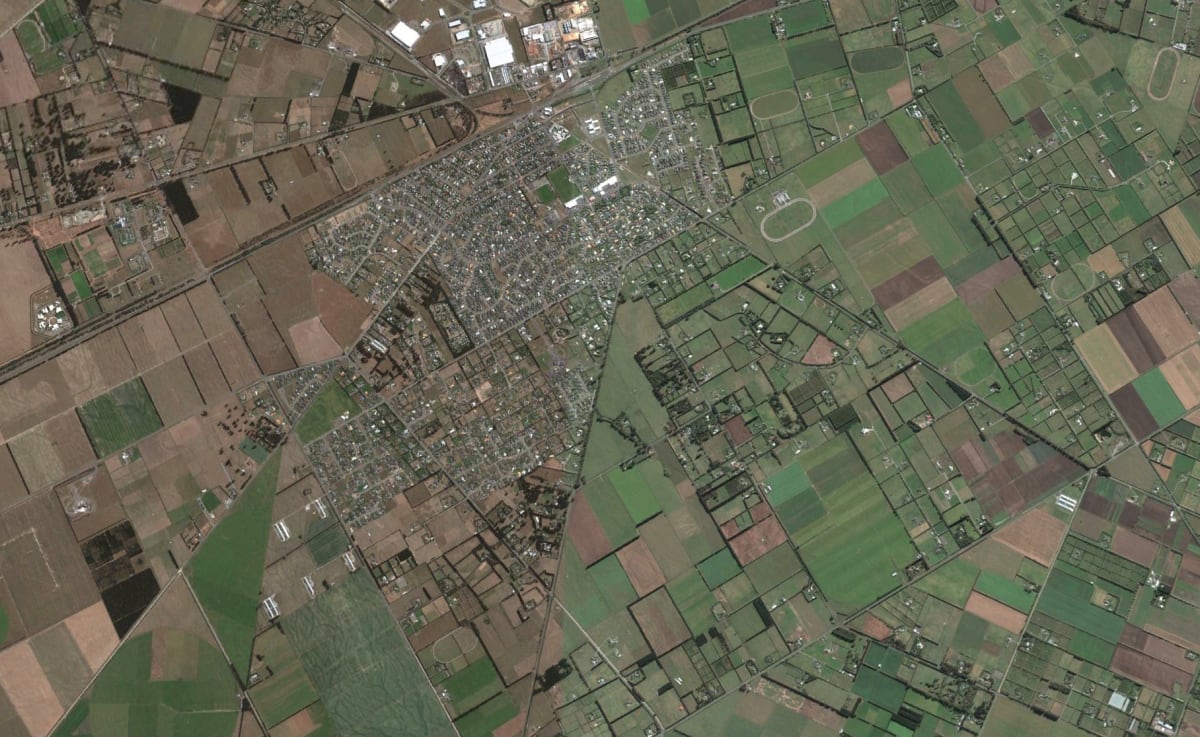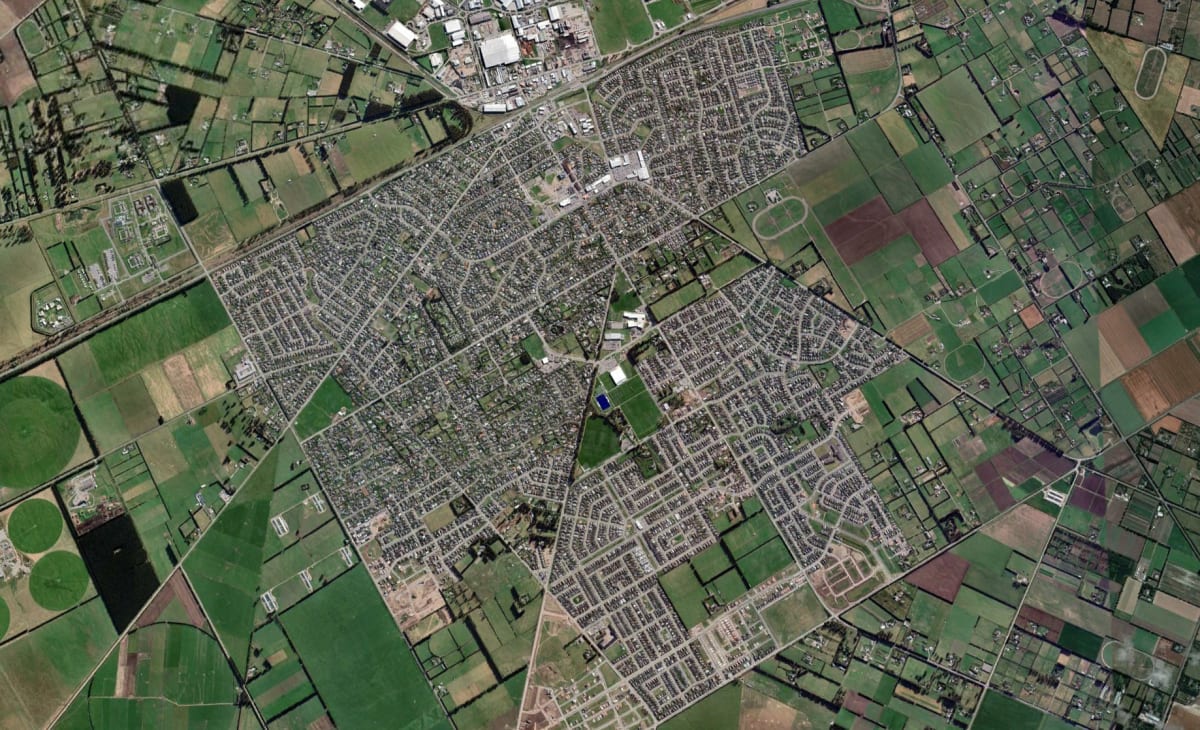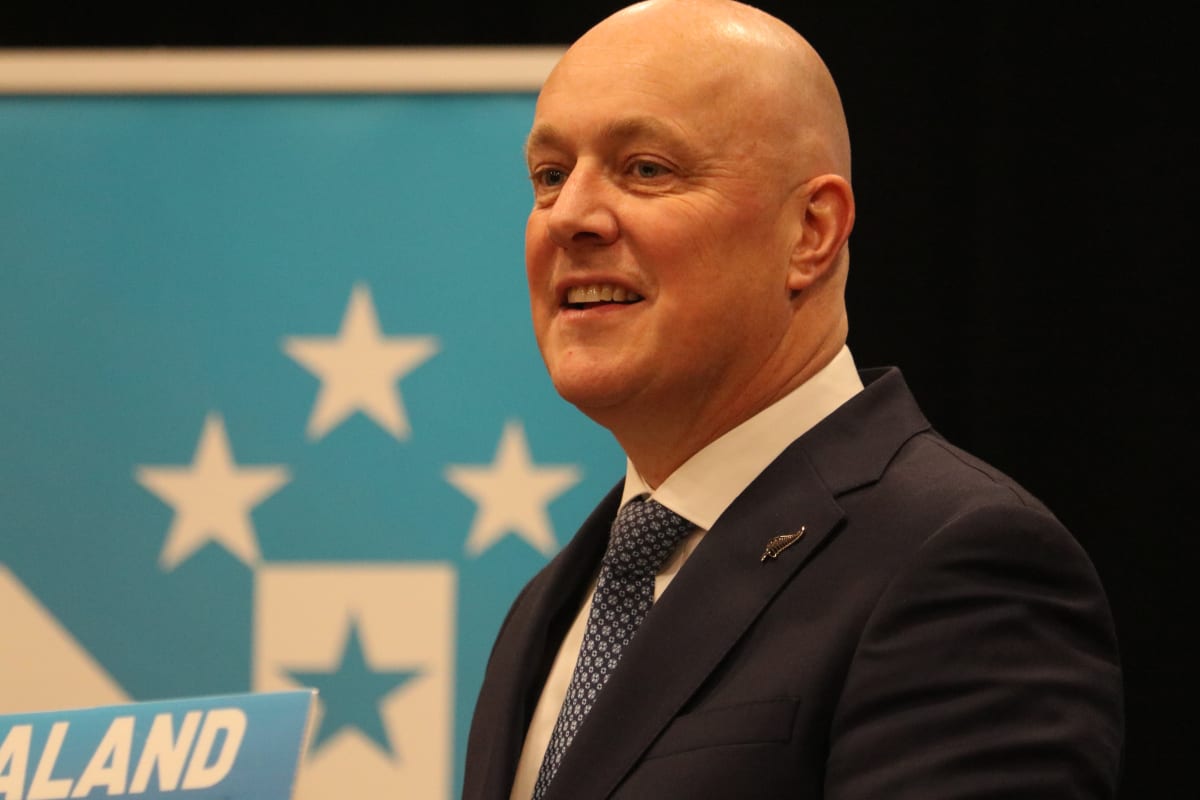
Christopher Luxon’s drive for party votes hits an Act-shaped judder bar
It may be a safe National Party seat but the leader wasn’t preaching to the wholly faithful last night.
Christopher Luxon spoke to more than 400 people at Rolleston College, south of Christchurch, deep in the heart of Selwyn, a seat National has held since it was reinstated in 1946.
READ MORE: * One word missing in Peters’ campaign launch * National, Labour eye up Auckland Central
One of the first to arrive at the college’s theatre – well before Luxon himself – was Tim Sanson, a salesman who lives at Taumutu, near Te Waihora/Lake Ellesmere.
“I generally see National as the way to go, and I can see why we need to change in my eyes – I think we’re going down a pretty dangerous path at the moment,” he said, the bitter wind raking us each time the door opened.
Sanson is a firm supporter of the local MP, National’s Nicola Grigg, and reckoned most people who turned up last night would be, too.
(Grigg is the great-granddaughter of Arthur and Mary Grigg, who were both MPs in the electorate when it was known as Mid-Canterbury. Arthur was MP from 1938 until 1941, when he was killed in World War Two. Mary, National’s first woman MP, served from 1942-43.)
Many people at Rolleston College last night have always voted National, and always will.
Why was Sanson there? “I need to be convinced why I shouldn’t give my party vote to Act.”
Grigg will be the hot favourite to win Selwyn in October but National will be working hard to turn around its party vote fortunes from 2020, when Labour’s red wave shook its true-blue foundations.
Labour got about 3500 more party votes than National, going from 26,003 in 2017 (when Amy Adams was MP) to 14,616.
What was more interesting, perhaps, was Act’s rise from 201 party votes in 2017 to 5396 – 12.5 percent of the 2020 total. Act also gained thousands of votes in other South Island seats in the last general election: Southland (+4875), Invercargill (+3751), Waimakariri (+4208), and West Coast-Tasman (+4100).
Sanson, the salesman, wouldn’t be surprised if Act snared 10,000 party votes in Selwyn this election.
“He’s pretty popular,” he said of leader David Seymour.
“He seems to say what the layman is thinking; he seems to be able to put it into words. Some of that’s really uncomfortable ... but maybe it’s necessary.”
If Act formed a coalition with National it would keep the party on the right side of the political centre, he said, by keeping it more focused on the economy.
According the people Sanson spoke to in recent weeks, they wanted to hear “a bit of anger about what’s going on in the country, rather than just reacting to everything, and a bit more front-footing”.
“[Luxon] is obviously a very clever man, and knows what he’s about, but we don’t quite know yet where that leadership is taking us and how strong it is.”
As people took their seats in Rolleston College’s theatre, we spoke to a female National Party member from a farming background, who preferred not to be named.
She said the Labour Party wasn’t interested in farming, but in giving handouts, while National was a business party.
“I’m here to hear what Christopher Luxon has to say, because he’s a businessman and knows how to run a business, and the country has to be run as a business to survive.”
A woman in her 30s who works for the Corrections Department said it was her first political rally.
“With the job that I do every day, it’s made me become more focused and concerned at what’s happening with our justice system and the crime.”


Selwyn is a boot-shaped electorate, which starts narrowly at the coast, at Te Waihora/Lake Ellesmere, and fans out inland at Arthurs Pass National Park.
Traditionally a rural seat, its make-up has changed over the past 20 years by an earthquake-induced population explosion in the towns south of Christchurch.
Now, Selwyn is one of the country’s fastest-growing areas.
So much so, the electorate’s most prevalent industry is construction (11.7 percent), followed by manufacturing (11.3 percent), and agriculture, forestry and fishing (9.6 percent).
Rolleston, branded ‘Town of the Future’ to the mirth of city folk, was home to 8000 people in 2010. Last year, the estimated population had grown to 28,000.
The future is now, it seems.
But last night, Luxon was late.
He was delayed because of a four-car crash on the Southern Motorway. As he apologised for keeping people waiting, he resisted the urge to mention former justice minister Kiri Allan.
National’s leader was quick, however, to mention he used to run an airline and knew how a “Christchurch crowd” likes to start on time.
Just as Hipkins leans on a “Boy from the Hutt”, Luxon felt he was close enough to Christchurch to brand himself a “Boy from Bishopdale”. (No applause.)
Oh, and he attended Christchurch Boys’ High School. (Applause.)
Luxon opened with a line that “we have a fantastic country” that is “jam-packed and full of endless potential”.
That’s similar to his opening at an infrastructure conference in Christchurch last month: “This is the best country on planet Earth and it has unlimited potential.”
Last night, Luxon said the country was going in the wrong direction, criticising Labour for economic mismanagement, and claiming Government spending is largely responsible for causing inflation.
(A few weeks ago, Finance Minister Grant Robertson said in Parliament, in answer to questions from Act leader Seymour, the Government fiscal decisions were in response to the largest economic shock since World War Two – and much of the inflation has been driven by global forces, and weather events.)
The National leader touched the usual points – reducing inflation, tax cuts, spending more on health and education, reducing red tape, opening up immigration, and restoring law and order by tackling gangs and establishing military academies.
In the Q&A, Luxon was asked if he believed in co-governance. “No, not of public services,” he said.
“Public services are available to all New Zealanders, and under Article 3 of the Treaty we have equal citizenship and equal protection and the same legal protection, and so we are all equal under the law.”
Another man, whose name was Andy, said he was involved in the New Zealand Defence Force’s limited service volunteer programme, for unemployed young people, at the Burnham Military Camp. Andy supported so-called boot camps.
“That is exactly what we’ve based it off,” Luxon said, “because you guys are getting kick-arse results.”
On a controversial draft school science curriculum, Luxon said it was not ready to go and National had agreed to pause its development, if elected.
Asked for National’s stance on LGBTQ “woke ideology” in schools, Luxon said: “Those sexuality issues should be dealt with in the home, and by parents and within their own family environments in the home.
“I want teachers focused on teaching the basics well.”
The National leader played a straight bat to a question about a new World Health Organisation treaty, saying it would go through Parliament, and the questioner should make a submission.
Luxon was called despicable for supporting vaccine mandates which led to “thousands” of medical staff losing their jobs (a December 2021 figure estimated 1461 health workers had been affected).
He replied: “We’ve actually opposed the last two or three rounds of mandate legislation that the Government has put forward, and I’m of the view we don’t need mandates now.”

More than 40 minutes after Luxon took the podium, a female speaker criticised the National leader for not saying much about farming.
While many people appreciated National’s focus on economic recovery, she said they were worried about the party’s focus on genetic modification (GM) to tackle farm emissions – “which could threaten New Zealand’s clean, green market edge in the eyes of overseas buyers”.
Luxon said farmers needed the tools and technologies to deal with climate change, and a new biotechnology regulator would ensure they were safe.
When he grabbed for an example, however, he stumbled.
He said Crown Research Institute AgResearch had developed a ryegrass that reduces livestock emissions by 15 percent. This is a theoretical benefit that is yet to be tested on animals.
Luxon said the ryegrass “can’t” be taken out of the lab in this country. But AgResearch has confirmed it never applied to New Zealand regulators for a trial “given the high bar and evidence base required for such an application”.
The ryegrass seeds are now being tested in Australia and the United States, Luxon said, but they’re not. The US trial has ended, and AgResearch withdrew its application across the Tasman.
Of the ryegrass’s potential, Luxon feared an offshore business will commercialise it “and make billions of dollars off it”. Patents to the ryegrass are held by AgResearch.
Luxon implored his questioner, last night, to “understand the technology”, especially methane inhibitors which are available in other countries.
“Not doing it means we don’t stay the world’s best farmers.”
Luxon’s answers failed to garner applause.
Clarity for some, not for others
Accountant Jamil Eldar, originally from Azerbaijan, asked Luxon a question about tax. After hearing the response, Eldar told the crowd to vote National, to laughter and applause.
Eldar told Newsroom before he left: “I like the clarity of the ideas that Christopher Luxon has proposed, he was really specific in terms of what problems he would like to address when the party’s in government.
“I liked how he defined the economic problems, particularly, because as an accountant, that is something that is close to my discipline and something that I can understand quite well.”
Meanwhile, our anonymous Corrections worker said Luxon’s comments on crime resonated with her – “they’re going to be harder on the sentencing, which will be good”.
Sanson, the salesman, left the meeting quickly in case he had to deal with flooding on his property.
He said later by phone that Luxon came across as genuine. “I imagine he’s doing an awful lot of speeches and what-have-you at the moment; he must be buggered. Well, you wouldn’t know it to look at him.”
Luxon appeared to handle curly questions from the floor better than six months ago, when Sanson last saw the National leader. (A man said he’d emailed Grigg 80 times without a reply. Luxon said: “She’s pretty busy but I’m sure she’ll pick it up with you afterwards.”)
Crucially, was Sanson convinced? Did he now have a concrete view of who would get his party vote in October?
“We’ll see,” he said. “Time will tell.”







